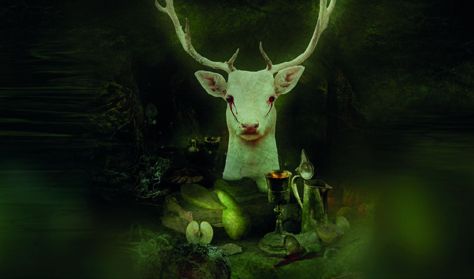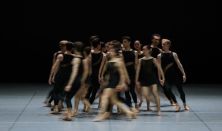
Bánk bán (The Viceroy Bánk)
Andrássy út 22., 1061 Budapest
Ferenc Erkel
BÁNK BÁN (THE VICEROY BÁNK)
Opera three acts, in Hungarian, with Hungarian and English subtitles
The text and musical material for the production have been created using both the original and the baritone versions
Current events
In 1844, following on the heels of his triumph in the competition to set Ferenc Kölcsey's Himnusz – today the national anthem of Hungary – to music, Ferenc Erkel set about looking at the possibilities for using József Katona's much-attacked drama Bánk Bán as the subject for an opera. History made the period of composition a lengthy one: first came the Hungarian War of Independence of 1848/49, and censorship by the dictatorship that followed meant that the audience would have to wait until 9 March 1861 before the work could be performed in its entirety at Pest's National Theatre. As a result of, or in spite of, the high-level additions and revisions, the remarkable aspect of the following performances of the ever-acclaimed Bánk Bán is the fact that the text and musical material were created using both the work's original version and the 1939 revision – the one best know to the wider audience – credited to Kálmán Nádasdy. The storyline thus most closely mirrors the thinking of original playwright József Katona, without forcing us to dispense with the now-timeless grand aria "Hazám, hazám" ("My homeland, my homeland").
AUTHORS
Composer: Ferenc Erkel
Librettist: Béni Egressy, Kálmán Nádasdy
Director: Attila Vidnyánszky
Set designer: Oleksandr Bilozub
Costume designer: Viktória Nagy
Choreographer: Árpád Könczei
Dramaturg: Eszter Orbán
English subtitles: Arthur Roger Crane
Chorus director: Gábor Csiki
Suggestions
Rudi van Dantzig – Toer van Schayk / Pyotr Ilyich Tchaikovsky SWAN LAKE Classical ballet in three acts
Radina Dace / Pjotr Iljics Csajkovszkij LITTLE SWAN LAKE Children’s production for little ones Please note, that this programme is…
András Lukács - Jiří Kylián Timeless Contemporary Adventure Whirling, Petite Mort, Six Dances
Warning! The basket time limit is about to expire!
item(s) in basket
total:
Time limit has expired. Please, put item(s) in to basket again.
















